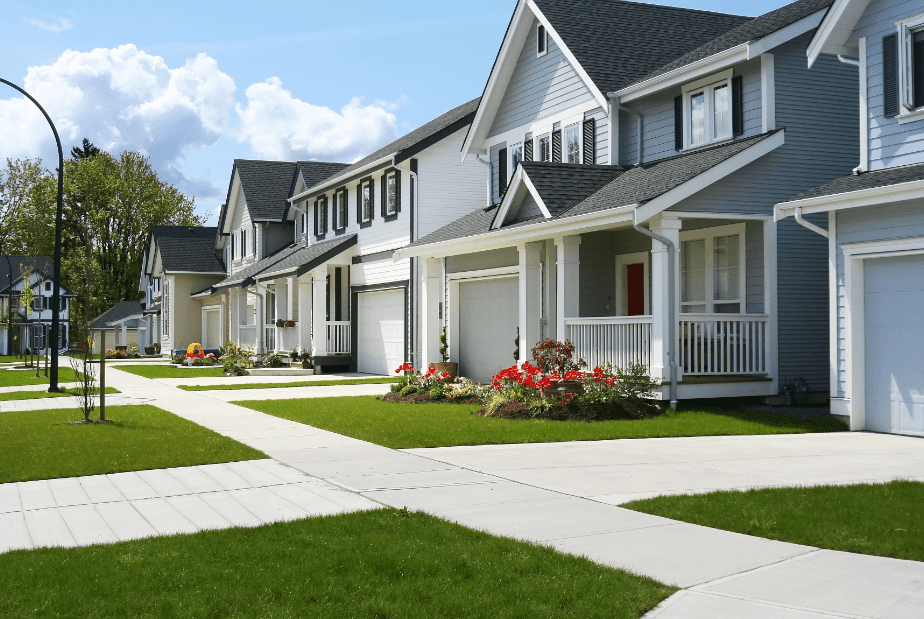
“The real estate market in the US has been highly dynamic over the past few years, with buyer demand being impacted by a range of factors.”
According to a report from the National Association of Realtors, the trends for the 2022-2024 period in the US include an increase in demand for homes with outdoor spaces, as well as technology features. In addition, there is a growing preference for energy-efficient homes, as well as homes that are located in walkable neighborhoods. These trends are driven by both lifestyle preferences and economic factors, such as rising energy costs and concerns about climate change.
Factors That have Impacted Buyer Demand.
IMPACT OF PANDEMIC
One of the biggest impacts of the pandemic has been the increase in remote work. As people have been able to work from home, they have sought out homes that are further away from urban centers and have more space. This has led to a rise in demand for suburban and rural properties, as well as an increase in prices for these types of homes. We can also mention the impact of the pandemic on the cost of living, with people looking for homes that offer more value for their money.
THE RISE OF REMOTE WORK
The rise in remote work has been a major factor in the real estate market. As people have become more comfortable working from home, they have begun to seek out homes that offer them more flexibility and comfort. This has led to an increase in demand for larger homes with more space, as well as homes with features like home offices and outdoor spaces.
HISTORICAL LOW RATES
The historical low rates have also played a big role in the real estate market. The low rates have made it more affordable for people to buy homes, and have led to an increase in demand. In addition, the low rates have also allowed people to borrow more money, which has led to a rise in the prices of homes. The combination of the pandemic and the low rates has created a perfect storm of demand in the real estate market.
CHANGE IN DEMOGRAPHICS
The changing demographics of homebuyers is another important factor to consider. Millennials have been the largest group of homebuyers in recent years, and they have different priorities and preferences than previous generations. They tend to value flexibility, technology, and convenience more than older generations. This has led to a shift in the types of homes that are in demand, as well as the features that are important to homebuyers.
THE CHANGE IN HOME OWNERS PREFERENCES
One of the biggest changes in homeowner preferences has been the increased importance of outdoor spaces. Many people have been spending more time at home during the pandemic, and they have come to value having outdoor spaces where they can relax and enjoy nature. This has led to a rise in demand for homes with features like decks, patios, and pools.
THE RISE OF TECHNOLOGY IN HOMES
The rise of technology in the home. More and more people are using technology to enhance their living experience. This includes features like smart home systems, which allow you to control things like lighting and temperature from your smartphone.
Implications Of The Trends on Real Estates.
HOUSING PRICES
The implications of these trends. One of the most significant implications is the impact on housing prices. The increased demand for certain types of homes has led to a rise in prices, especially in desirable locations. This has made it more difficult for some people to find affordable homes.
IHOMELESSNESS
Another issue that’s related to the housing market is the growing problem of homelessness. The rising cost of housing has made it difficult for many people to find a place to live, and this has led to a rise in homelessness. This is a complex issue, but there are some potential solutions, such as increasing access to affordable housing and providing more support services for people who are struggling to find a place to live.
IMPACT ON CITIES AND TOWN
One of the other major implications of the trends in the real estate market is the impact on cities and towns. As more people move to certain areas in search of affordable housing, this can put a strain on local resources, such as schools, transportation, and healthcare. It can also lead to gentrification, which is when wealthier people move into a neighborhood and drive up the cost of living, forcing out lower-income residents.
IIMPACTS ON ENVIRONMENT
Another impact of the trends in the real estate market is the impact on the environment. As more people move to certain areas, this can put a strain on the natural environment, leading to problems like traffic congestion, air pollution, and water shortages. It can also lead to the loss of open space and wildlife habitat.
IMPACT ON ECONOMY
nother potential positive implication of the trends in the real estate market is the impact on the economy. The increased demand for housing can lead to job creation and economic growth. For example, new construction projects can create jobs for construction workers, architects, and other professionals.
Solutions To Consider
After looking at the implications of the trends in the real estate market, we can now consider some of the possible solutions. One solution is to increase the supply of affordable housing by creating incentives for developers to build more low-income housing.
Another solution is to create policies that encourage mixed-use development, which combines residential and commercial uses in the same area. This can make it easier for people to live near their jobs and reduce the need for long commutes.
The importance of educating the public about the issues surrounding the real estate market. By raising awareness about the challenges and opportunities presented by the current trends, we can help to create a more informed and engaged public.
Bottom Line
- The real estate market is complex and multi-faceted, with a variety of factors influencing its trends.
- The implications of these trends can be positive or negative, depending on the situation.
- Education is an important part of addressing the challenges and opportunities presented by the real estate market.
- The importance of dialogue and open discussion when it comes to finding solutions and moving forward.
- Overall, the future of the real estate market is uncertain, but there are ways to address the challenges it faces.That about sums it up



0 Comments